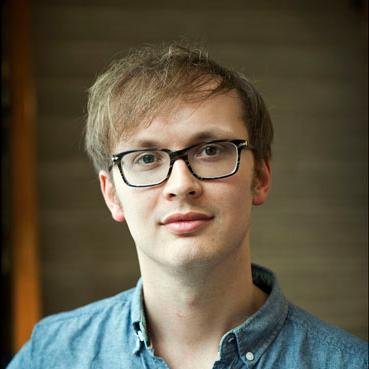Nerd Nite 31
Get ready for some serious science Nerd Niters, and save the date for an evening all about neurology and linguistics! Will there ever be a world without Alzheimer’s? Is it possible to early diagnose this terrible disease? Our first speaker TedX Amsterdam Award winner Jurre den Haan will talk about his research on early diagnostics of Alzheimer’s through the eye and try to find an answer to these questions. And after all, what would science be without the right questions? Our second speaker IgNobel winner Mark Dingemanse will tell us all about their power and share how studying misunderstandings can teach us deep lessons about language itself and human nature. Join us at Nerd Nite XXXI on 31 March, be there and be square!
DETAILS:
Friday 31 March
Doors open at 20:00
First talk at 20:30
at CREA Muziekzaal
Nieuwe Achtergracht 170
1018 WV Amsterdam
Alzheimer diagnosis: the eye as a window to the brain?
by TEDx Amsterdam Award 2015 winner Jurre den Haan
 The brain is the most intriguing organ we possess. It makes us think, communicate, feel and love. Always wondered what goes wrong in the brain during Alzheimer’s Disease (AD) when you lose all these abilities step by step? How can we end the series of failed trials so far? It turns out the eyes are the window to the… brain! The eye might be the source of early and patient friendly diagnosis. This could mean a first step towards a world without AD. Jurre de Haan will take a bird’s eye view on the advances of 15 years of AD-research and the importance of awareness that AD is a public rather than a medical cause.
The brain is the most intriguing organ we possess. It makes us think, communicate, feel and love. Always wondered what goes wrong in the brain during Alzheimer’s Disease (AD) when you lose all these abilities step by step? How can we end the series of failed trials so far? It turns out the eyes are the window to the… brain! The eye might be the source of early and patient friendly diagnosis. This could mean a first step towards a world without AD. Jurre de Haan will take a bird’s eye view on the advances of 15 years of AD-research and the importance of awareness that AD is a public rather than a medical cause.
Bio: Jurre den Haan is intrigued by the brain and its function ever since he studied medicine at the VU University. In his PhD in neurology he aims to visualize Alzheimer’s disease(AD) in the eye; the retina in specific. He also combines running and charity for AD-research in two editions of ‘de Damloop voor Alzheimer’.
The Power of Questions
by IgNobel Prize winner Mark Dingemanse
What is the goal of science? Finding answers, you may say — but that means we had better be asking the right questions. What better place to start than “Huh?”, the simplest question known to humans. In everyday life, we use expressions like this all the time to briefly halt the conversation to fix some trouble, then seamlessly pick up where we left off. Amazingly, this practice seems to be uniquely human: no other animals seem to be able to fix communicative trouble i n this way. Ig Nobel prize winner Mark Dingemanse provides a guide to asking the right questions by taking us into the world of linguistics, the science of language. From “Huh?” he leads us to more complex questions, and shows us that some of the deepest lessons about language and human nature lie in what we do when things go wrong.
n this way. Ig Nobel prize winner Mark Dingemanse provides a guide to asking the right questions by taking us into the world of linguistics, the science of language. From “Huh?” he leads us to more complex questions, and shows us that some of the deepest lessons about language and human nature lie in what we do when things go wrong.
Bio: Mark Dingemanse is a language scientist who studies people in the wild and in the lab to understand why languages are the way they are. He and his team discovered that rarest of things, a word shared by languages across the globe — a serendipitous finding weird enough to be awarded with an Ig Nobel prize in 2015. He works at the Max Planck Institute for Psycholinguistics.
